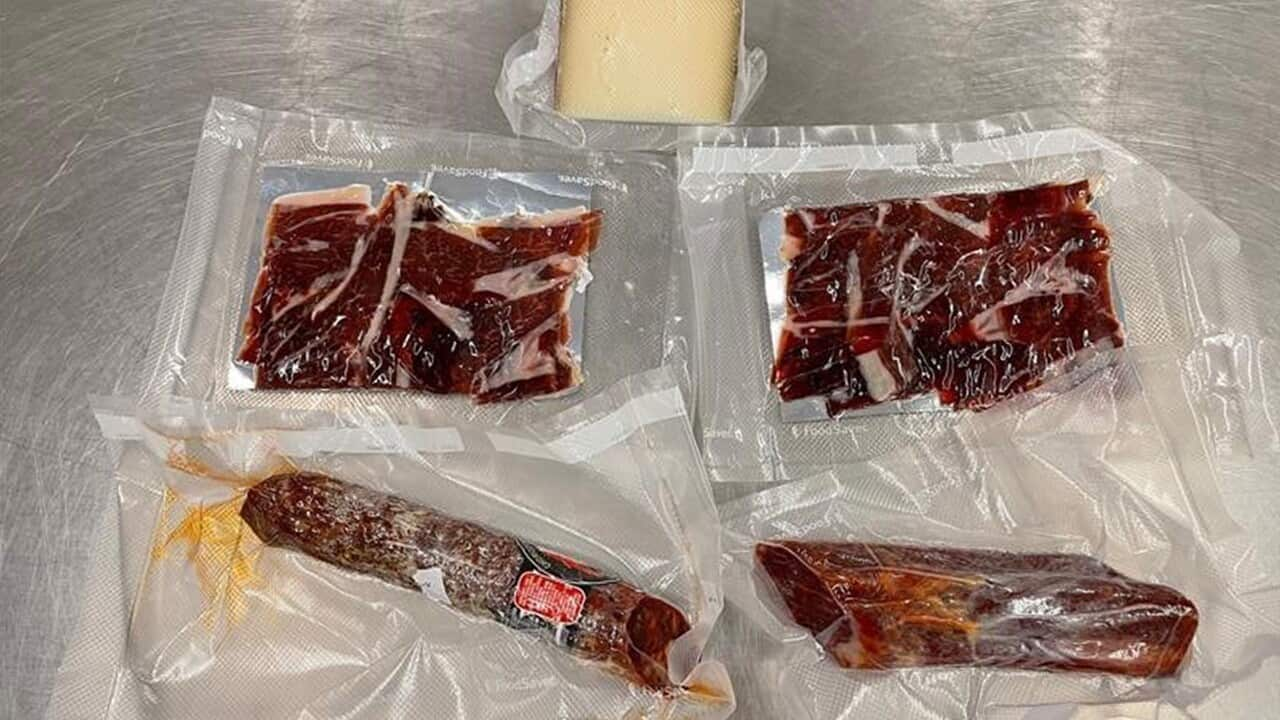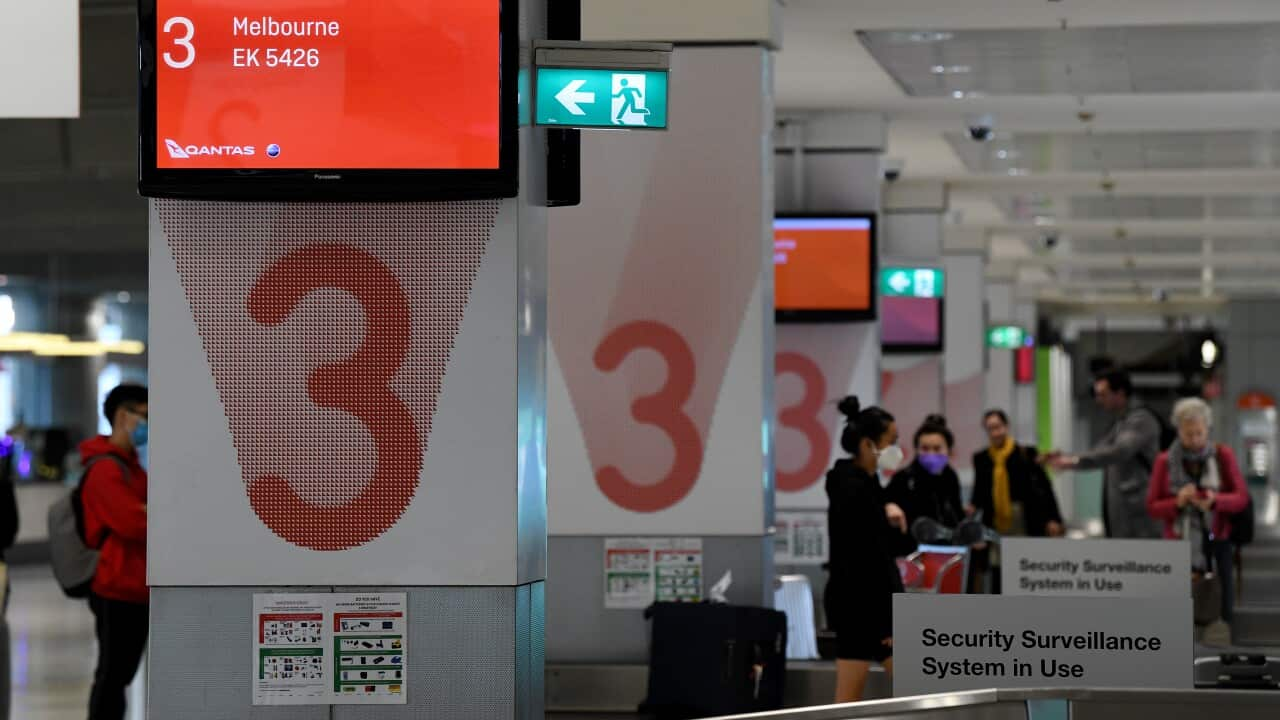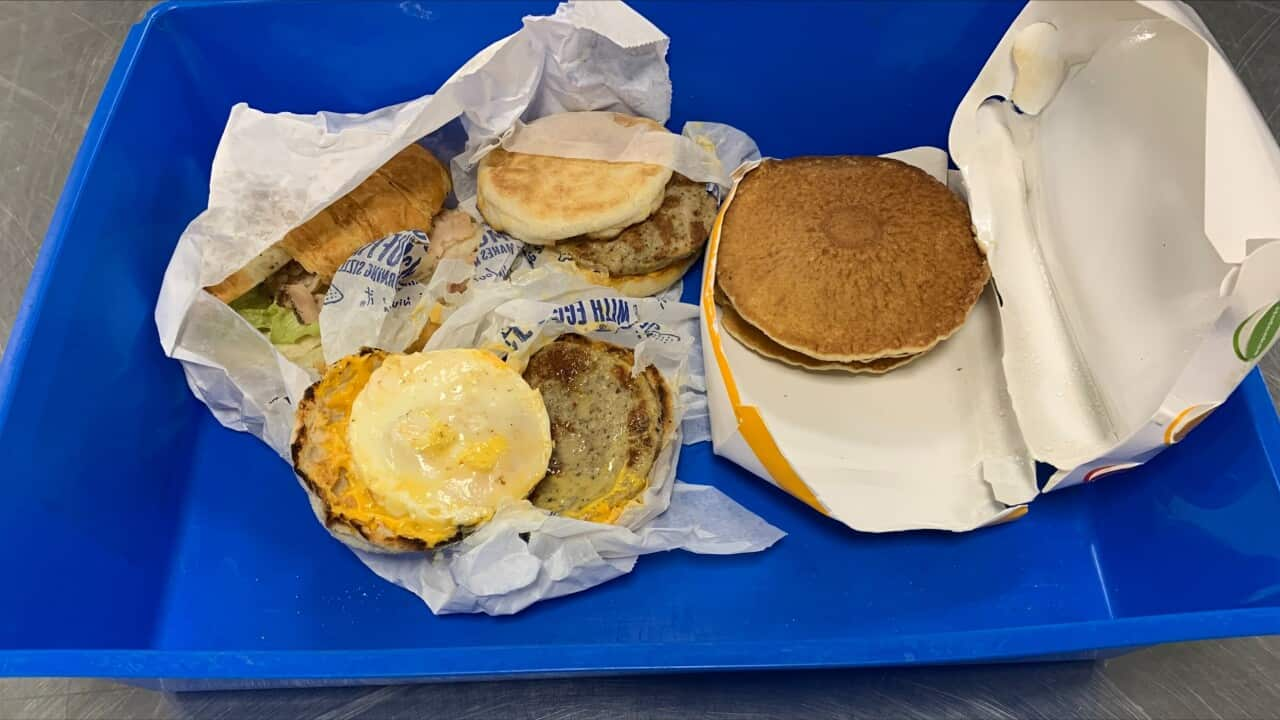Key Points
- The 20-year-old Spanish man had his visa cancelled and was fined $3,300 for carrying undeclared cheese and meat.
- He was stopped at Perth airport last week.
- He is the first person to be fined under tougher biosecurity laws.
A Spanish traveller has become the first person fined under beefed-up biosecurity laws after he failed to declare meat and cheese in his luggage.
The 20-year-old man had his visa cancelled and was fined $3,300 for carrying more than one kilogram of undeclared raw pork meat and cheese.
The man was stopped at Perth airport last Tuesday when 275 grams of non-commercial pork pancetta, 665g of non-commercial pork meat and about 300g of goats' cheese in his luggage weren't declared.
The Albanese government announced in October it would to stop diseases and pests from entering and establishing in Australia.
Previously the man would have had his visa cancelled and been fined $2,664.

The man was stopped at Perth airport last Tuesday. Source: AAP / Richard Wainwright
Minister for Agriculture Murray Watt told news agency AAP the new laws won't dissuade travellers from coming to Australia.
"I think the overwhelming majority of tourists do the right thing and they declare biosecurity risk items when they arrive and that's what this guy didn't do," he said.
"If he had declared those products, other action would have been taken, but the problem was that he didn't declare them.
"We are serious about keeping foot and mouth and other diseases out of the country and travellers need to remember that when they're trying to enter Australia."
Senator Watt called on international travellers to think carefully about their passenger declarations and report anything in doubt.
It comes as the department of agriculture issued a warning about the Lunar New Year which starts on Sunday.
The department's Dr Chris Locke said Lunar New Year gifts which are often food parcels could be stopped at the border.
"Unfortunately, there are some traditional gifts for Lunar New Year that could introduce pests and diseases into Australia," Dr Locke said.
"We often see items at the border that contain pork, fruit, plants, herbs and eggs. Items like these could pose a high risk of introducing pests and diseases."
It's been estimated an outbreak of foot and mouth in Australia cost the economy more than $80 billion across 10 years.
Those failing to declare biosecurity risk items at the border face fines of up to $5,500 and the cancellation of their visa.



